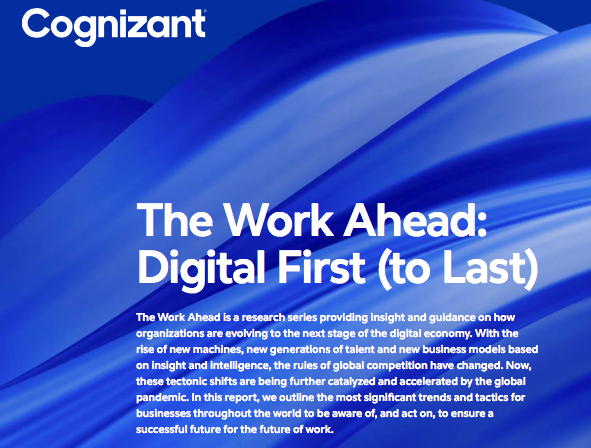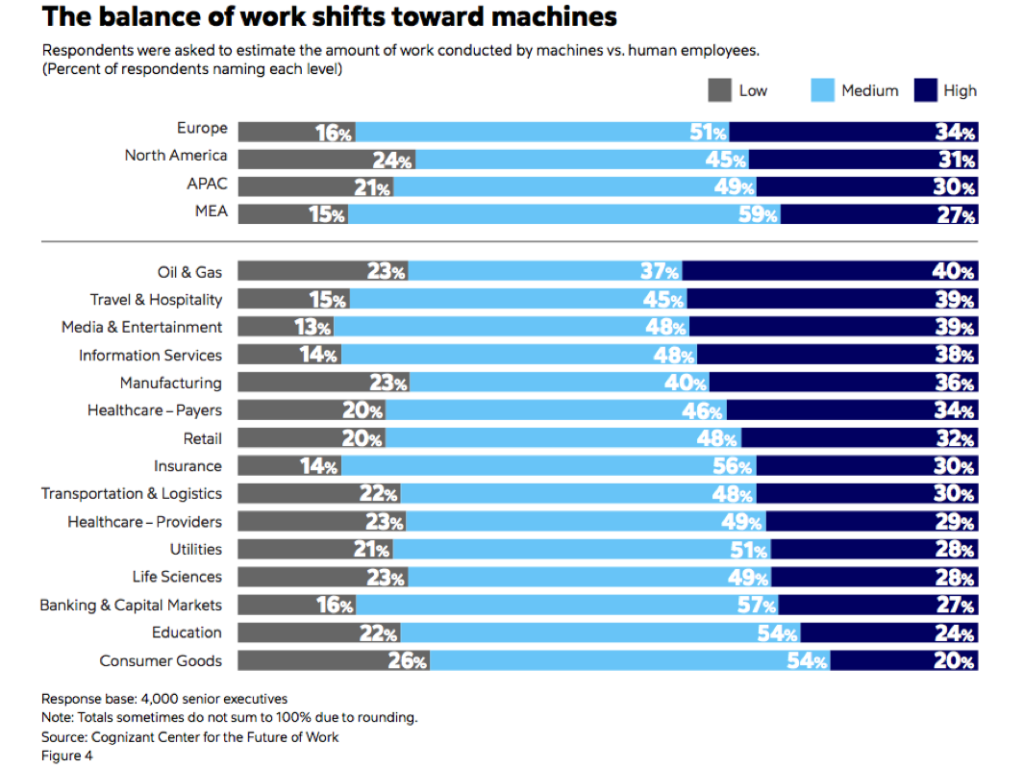Research Digested: The Work Ahead: Digital First (to Last), Cognizant

A snapshot of useful research for L&D and workplace professionals.
Why read this report
This report provides insights into organisations’ digital journey, including research findings from a similar research study carried out in 2016. The comparisons between the two sets of responses are quite revealing. Technology and automation are here to stay but technology has not produced some of the benefits people hoped it would when they were surveyed four years ago.
About this research
Cognizant teamed up with Oxford Economics in the third quarter of 2020 to survey 4,000 executives around the world about digital and the future of work. The report explores three areas:
- The future of work is no longer in the future.
- There are no silver bullets for automagical results.
- Skills, values and purpose in the 21st century.
Standout stats
The headline stats reflect the changes employers have had to make in response to the Covid-19 pandemic.
- 57% say they will redesign the workplace for social distancing
- 49% say the pandemic will destroy traditional, non-digital business
- 43% say they will streamline their estate
- 37% say they will rely on digital channels to deliver to customers.
Across the board, employers in all sectors said that as a results of Covid-19 employees will spend more time working from home:
- Information services – 47%
- Insurance – 45%
- Media and entertainment – 38%
- Banking and capital markets – 37%
- Education – 33%
The research shows the growing impact of automation across a range of industry sectors. It’s noticeable how important automation has already become . . .

The research looks at the impact of several other factors on work. The top three are:
- Hyper connectivity of billions of people, machines and devices – 47%
- Artificial intelligence – 43%
- Outsourcing of internal work – 41%
- Concerns about privacy (40%) is also a significant concern.
Interestingly, when asked about the impact of digital technologies on work, there is a marked difference between what respondents said in 2016 versus what they say today. For example, in 2016 74% of workers said that technology helps them work more effectively (versus 48% now) 65% said technology allows them to be more innovative (versus 47% now) and 87% said technology improves their productivity (versus 46% now).
And in the medium term, respondents say the pandemic will affect work in the following ways:
- Pay more attention to workforce safety – 59%
- Value and pay essential workers more – 58%
- Pandemic has accelerated digital working practices – 52%
- More flexible terms, less functional departments – 50%.
Final word
This large-scale research focuses on the impact of digital and automation on organisations, something all employers are grappling with. The devil is in the detail and the comparisons between this year’s data and that of 2016 are particularly telling. Why is technology holding back innovation and productivity?
Report reading time: 20 minutes
Media: PDF
Link: The Work Ahead: digital First (to last)

